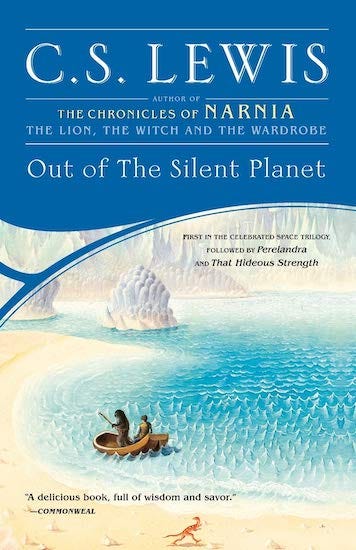What to Read Next (No. 202): two 1930s fiction classics + Black Friday goodies!
I hope you all had a wonderful Thanksgiving holiday! Long weekends are always a great time to do some binge-reading and either finish a book you’ve been working on for a long time or start something you’re extra excited about.
In the last couple weeks I’ve unintentionally managed to finish a couple of short, classic books from the late 1930s. Though neither ended up being a favorite, they were both nice reprieves from the two huge non-fiction books I’m in the middle of (Truman and Helter Skelter).
Before jumping into the goodies, a couple quick announcements:
Read More Books Black Friday Sale
If you’re interested in supporting this newsletter with an annual plan ($52/year), I’ll throw in a Read More Books tote bag if you take the leap this weekend. These bags were previously only available to founding members, so this is a big deal folks!
Paid members get an extra email per week (on Tuesdays) and access to the RMB Slack community. Also, the tote! Offer expires on Sunday night. Ultimately, it shows that you want to support what I’m doing here and keep this thing alive.
P.S. If you’re already a subscriber, you can buy the tote for $12 (shipping included). Email me back if you’re interested.
The Stephen King Project
Because of some very big news that I can’t share until next week, I’ve decided to publish my Stephen King reviews over on a traditional blog. For that project I’ll be going well beyond a normal review and getting into the book’s context, story, and takeaways.
My post on Carrie is live and you can view it by clicking the button here:
And Then There Were None by Agatha Christie
Published: 1939 | Pages: 248
The pick for the November meeting of the Colorado Cocktail and Literary Society was a bit polarizing. About a third really enjoyed it, a third didn’t care for it at all, and a third landed somewhere in the middle (I landed in that final group).
This “locked room” mystery is, rather surprisingly, among the best-selling books of all time. Taking a break from her Hercule Poirot series, Christie penned this standalone story about 15 years into her career. She was testing not only her writing skills, but her narrative powers. Could she pull off a story in which 10 persons arrive at island, only to be systematically killed off until none remain?
On a story level, the answer is a resounding yes. You don’t really need my word for that though, given its place as one of the most popular books ever.
How come my opinion was more of a 3.5, then, rather than a 4.5 or a 5?
It mainly had to do with length and characters.
My first quibble was simply that 10 murders take place in the span of about 240 pages. In a few cases, deaths are mere pages apart, which just doesn’t give much space for build-up or reflection. This is the rare book that could have benefitted from a higher word count.
My second quibble was that there wasn’t a focus on any of the characters—there was nobody for me to root for or against. In other locked room mysteries with a large cast of characters (Ruth Ware’s excellent One by One, for instance), there are at least a few folks that get more space than others, which allows for a greater depth of character building.
That said, 3.5 stars, for me, is still an enjoyable enough read to finish and recommend. I enjoy Christie’s Poirot series better, but I’m glad to have read this one, especially given its minimal time commitment.
P.S. I have more thoughts on Agatha here and here.
Out of the Silent Planet by CS Lewis
Published: 1938 | Pages: 158
Casual fans of the famous Christian theologian often haven’t even heard of his Space Trilogy, of which Out of the Silent Planet is the first installment. Deep cut fans of his often say this series is among his finest work.
It’s fair to say that I’m more of a casual Lewis fan, but this series has been recommended by enough of my die-hard-fan friends that I wanted to give it a shot.
I went into it knowing absolutely nothing about the story, which made it rather fun. Through a series of unfortunate circumstances, Professor Ransom is spirited away from Earth and taken to Malacandra (which is later found out to be Mars).
When the Earthly crew arrives, they’re met by the red planet’s three native species, all vastly different from humans. Mars, in Lewis’ conception, is actually a lush, vibrant planet. There’s harmony among the natives, and, of course, the humans manage to muck it all up.
Back in the late 30s, on the cusp of World War II, this was actually a pretty subversive message. In Out of the Silent Planet, the English—and all of humanity, really—are the weaker species compared to the Malacandrans. Humans, the Séroni claim, have become their own individual gods with a penchant for violence and dominance.
As with all of Lewis’ fiction, the downside is simply that he tries a bit too hard and a bit too directly to get some sort of theological point across. In my opinion, it’s always more powerful to just tell a great story and let any lessons happen organically, as his buddy Tolkien was so masterful at with The Lord of the Rings.
Nonetheless, it was a quick and enjoyable read. Another 3.5 stars for me. I’ll definitely read the other two in the series sometime, but not right away.
Thanks so much for reading! As always, I really appreciate the time and inbox space.
-Jeremy





